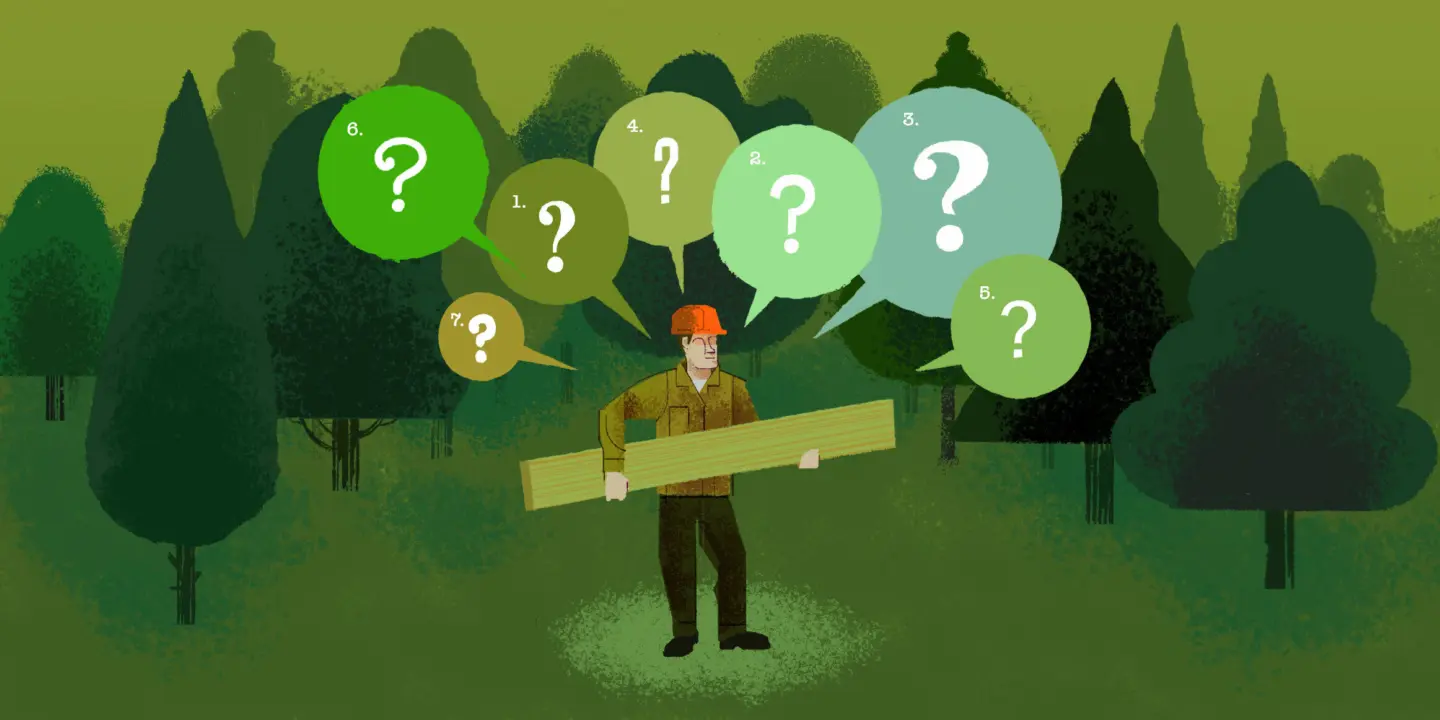

Call me an optimist, but I believe this isn’t the case.
Of course, we can’t all be Greta Thunberg or David Attenborough. But we do have the power to drive change. And it starts with something very simple and very doable: asking questions.
We all have the power to ask questions. And it’s through asking that we can make a difference.
As the owner of a business, I sometimes feel that customers don't care about much beyond price and functionality. Very few people ever ask us where things have come from or what impact the materials are having on the planet.
This is something I’d love to change.
You see, I think a lot of people do care about this information. But they’re just not asking the questions yet.
As consumers, it’s vital that we ask questions about the products we’re buying. If we’re not asking, we are failing to hold companies to account. And we’re missing an opportunity to persuade business owners to make positive changes for the future.
I can promise you that awkward questions from customers genuinely affect behaviour at the highest levels of management.
At the end of the day, all companies want to satisfy their customers and keep the money flowing.
If enough customers ask questions about where things have come from and what was involved in making them, business owners will have no choice but to listen.
So, for those of us who care about the impact we’re having on the planet, the only thing that stands in the way of change is courage (and maybe British politeness).
It’s time to respectfully park that politeness and start asking. Where have these products come from? What was the impact of making or growing them? What do I do with it when it's finished or broken?
If you're feeling really bold, you could follow with some questions about possible alternatives. Do you offer something that hasn’t travelled so far, or that has a lower impact? Do you have options designed to be repaired, reused or recycled?
It gets easier, I promise.
Many years ago the clever people at Toyota, created a management tool called Seven why's. The idea is that if you ask “why?” seven times, you will get to the root of any problem. Spoiler alert: you will normally get there in less than seven.
You may not get the answer you want, but that's okay too. Because if enough customers like you ask the same question, it will passed up the chain of command – and eventually it’ll be asked at the very top.
Remember that company owners want to keep you happy. When owners keep hearing the same questions about the impacts of their products, they will get the message that their customers care.
Which means they’ll start investigating their supply chains, and probably find things they didn't expect to find. Even better, they may start putting these right.
So, please, please ask the questions. It’s an important first step in driving change. And it’s something we can all do today.
Why not come and practice on us? Come and ask those questions – we are a soft target. And then together let’s start a campaign of pestering companies with questions. Important ones about provenance and impact.
That way, companies will start seeing that customers do care.
Not just about the answers to their questions, but about the future of our amazing planet too.
#AskQuestions
Tom Barnes
MD of Vastern Timber and creator of Brimstone

This beautiful renovation project is one of a kind. Once an old threshing barn, it has been transformed into a family home, studio and wildlife haven by landscape architect and owner Toby Diggens.

It’s not standard practice to use local wood - but we’re on a mission to change that.